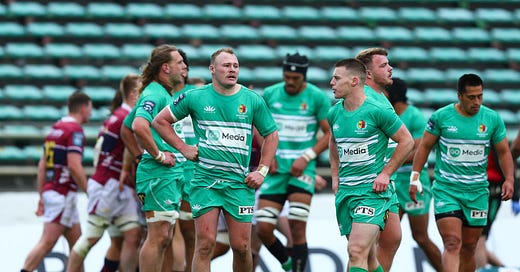Monday mash-up: It never rains, it pours
Mo' money troubles, more TMO nonsense, Will O'Rourke get a run, Swift wins the Super Bowl and a marathon tragedy.
Those of you who opened Friday’s email would have spotted a litany of domestic issues for New Zealand Rugby to address in the coming months, which include trying to avoid tipping back into a fractious relationship with the Players’ Association. It is clear the NZRPA regards the provincial unions’ at…
Keep reading with a 7-day free trial
Subscribe to The Bounce to keep reading this post and get 7 days of free access to the full post archives.




